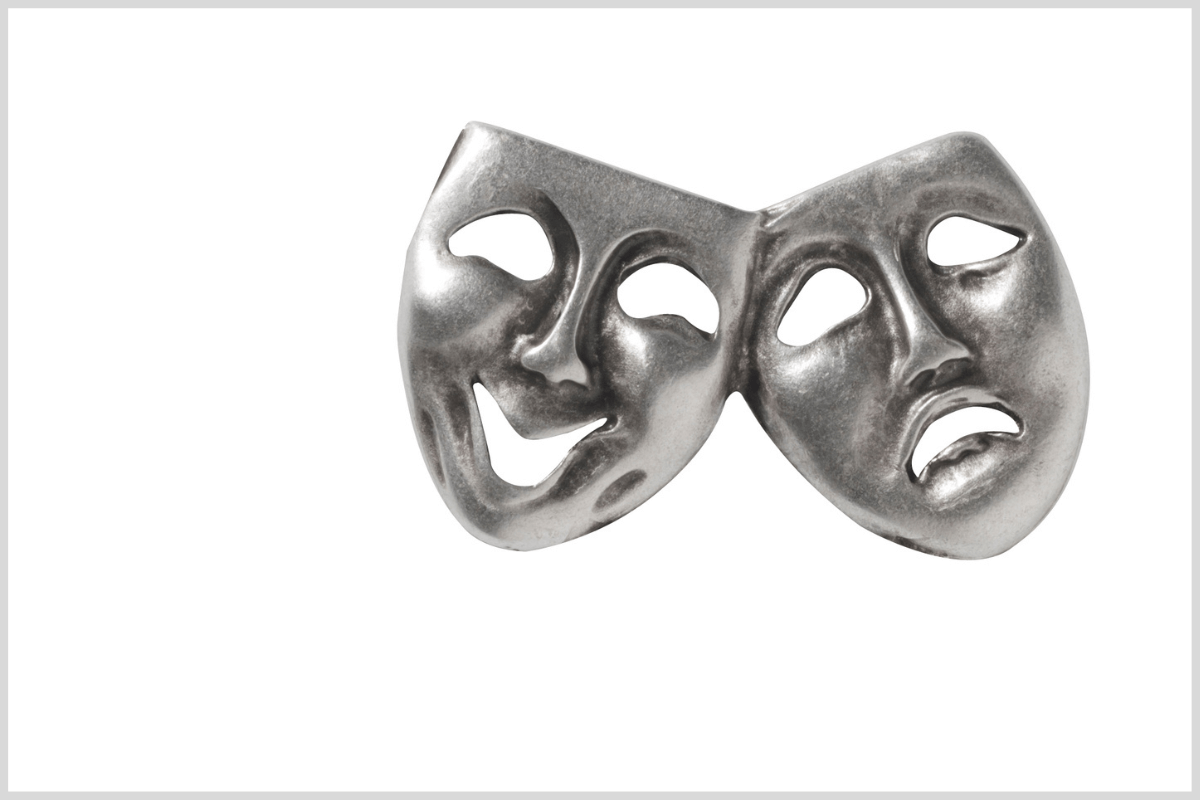5 Striking Lessons From Actors About Shame, Authenticity and Becoming Real
SHAME, AUTHENTICITY, AND BECOMING REAL
This post is a decidedly different one than I usually write. Instead of information about trauma and addiction, I’m sharing a profound experience I had this past week – one that left me pondering the destructive impact of shame, the transformative power of connection, and the gift of embracing the messiness of what it means to be human.
I had the privilege of being part of a life-changing retreat for a group of actors lead by Matthew Harrison of The Actor’s Foundry in Vancouver – not as an actor but as a facilitator. This annual retreat had many layers to it. While it is was undoubtedly about actors enhancing their craft, it was also a deep-dive into authenticity as a human being. It was about being real.
Matthew Harrison is the director of The Foundry. He’s an actor as well as an acting teacher and coach. Matthew believes that an actor needs to start with an authentic understanding of who they are before they’re able to become another character. The retreat was about actors getting in touch with themselves and then sharing that with others. They spoke of experiences that have shaped their sense of self, the insecurities that keep them stuck, and the voice of shame that diminishes who they are.
The conversations focused on understanding the human condition – the painful challenges we face and the ways we find support for these challenges in this thing called “life”.
My role was two-fold. I got the opportunity to share the information I am passionate about. I presented a workshop that covered how our brains and nervous system are wired, what trauma is and how it impacts us, and the power of supportive relationships in the process of healing. And then I also helped facilitate a time of sharing for each retreat participant that went something like this:
Imagine sitting in a group of peers sharing the parts of yourself that you usually hide from others.
Unhealthy coping tools that have become a source of pain or shame. Traumatic experiences that have profoundly impacted your sense of self. The parts of yourself that feel unlovable. The masks you wear to cover insecurity. The voice of your inner critic, and your wounded part that believes those words are true.
Then imagine what it feels like to receive love and support from those around you.
To have your false beliefs about yourself challenged. To be courageously applauded for stepping into your true self. To realize that your fears about rejection diminish when you can embrace that others genuinely accept you.
And then comes the realization that virtually everyone struggles with exactly the same thing.
It's usually a painful human experience that shaped our fears. We all struggle in being our authentic self. We all have times of feeling "less than". We all hide parts of ourselves out of fear that others will judge or reject. Instead of being able to move into meaningful connection with others, we cover it up with unhealthy behaviours, with a false image, or mood-altering with something to take the pain away.
Imagine the relief that comes from knowing you’re not alone – your deepest insecurities are echoed by others.
You learn that everyone has their own fears and painful beliefs. Everyone has their own inner critic. We all cope with emotional pain by hiding some aspect of ourselves. Welcome to humanity – we’re all pretty similar. Often, we’re too full of shame and fear to let other humans see us. Humans that are just like us but who are also too full of shame and fear to let others see them.
And then they turned their stories into a work of art:
The other exciting part of the retreat was that these deeply personal stories became the script for a play written and performed in 24 hours. The actors were able to honour each other’s journey by sharing these stories.
What courageous actors reveal about shame, authenticity, and being real:
We are all human – that means we all struggle with the same things: shame, fear, painful life experiences, and unhealthy coping mechanisms.
It’s helpful to have a good understanding of how the human brain and nervous system is wired. If we know how things are supposed to work, it’s easier to see where and how things go amiss. When we understand how we are wired from a nervous system perspective, it takes the mystery out of why we do what we do, why feel what we feel, and why think what we think. It also takes away the shame for being human.
Shame poses two significant dilemmas for us. The first paradox of shame is around the fear of being seen. Shame makes us feel we need to hide, to wear a mask, to keep our true self hidden to avoid the painful experiences of judgement or rejection. It makes us feel we need to become someone other than who we authentically are. The voice of shame tells us we must hide from the scrutiny of others. And its voice is so powerful we sometimes feel like we would die if we were truly seen. But the antidote for shame is simple: we actually need to experience being seen and loved despite our human failings. Being seen, known, and loved is the way we heal shame.
The second paradox of shame is summed up in this beautiful quote:
Here’s the paradoxical thing about shame —
As a feeling, it is real.
As a reality, it is untrue.
There has never been a life chapter, a day, or even a moment when we were not
worth love and belonging. (Renee Roederer)
I love this quote because it highlights our struggle with shame. Shame makes us believe we are not worthy of love and acceptance. It makes us think we need to hide our true identity. The experience of shame is real – it is powerful and overwhelming. But, in reality, it is untrue. There has never been a moment when we were not worthy of love and belonging.Healing comes when we feel seen and supported by people we know and trust. Dr Kelly McGonigal is a leading expert on the impacts of toxic shame. She says the best antidote for shame is “the purest form of connection, a sense of empathy, or a sense of common humanity. Sometimes the most important thing is to get out of your head and have a conversation with someone who cares about you.” I witnessed these courageous actors taking the risk of connection, of offering each other genuine empathy, and sharing the most vital parts of our shared humanity – and it is life-changing.
Becoming Real
The Actor’s Foundry Retreat reminds me of a powerful lesson from one of my favourite children’s stories, The Velveteen Rabbit by Margery Williams. This excerpt is part of a discussion between toys in a nursery – a conversation about the journey into becoming real.
“Real isn’t how you are made,” said the Skin Horse. “It’s a thing that happens to you. When a child loves you for a long, long time, not just to play with, but really loves you, then you become real.”
“Does it hurt?” asked the Rabbit.
“Sometimes,” said the Skin Horse, for he was always truthful. “When you are real, you don’t mind being hurt.”
“Does it happen all at once, like being wound up,” he asked, “or bit by bit?”
“It doesn’t happen all at once,” said Skin Horse. “You become. It takes a long time. That’s why it doesn’t often happen to people who break easily, or have sharp edges, or who have to be carefully kept. Generally, by the time you are Real, most of your hair has been loved off, and your eyes drop out, and you get loose in the joints and very shabby. But these things don’t matter at all, because once you are Real, you can’t be ugly, except to the people who don’t understand.”
To the Actor’s Foundry Retreat participants (both recent and past years), I extend my gratitude – it is truly an honour to witness your courage as you step into being more of who you are. While it will likely make you a better actor, I know it makes you a more “real” human being. Thank you for sharing yourself!
Check out Matthew Harrison and the Actor’s Foundry here.

